FALL OF THE QUEEN
In the summer of 1974, Park Geun Hye was 22 and studying at the University of Grenoble in France. Her ambition was to become a teacher.
One balmy day in August, that dream was shattered forever. She received a message from her native South Korea: Come back immediately.
She packed her bags and rushed to the airport. As she hurried past a newsstand, a headline caught her eye and she froze.
"First Lady Madam Park Assassinated," it read. Above it was a photo of a fair-skinned woman with kindly eyes and gentle smile. Her mother.
The young woman felt as if a knife had been plunged into her heart.
Back in Seoul, Ms Park was given the blood-stained dress her mother was wearing at the time of her killing on Aug 15, 1974.
Madam Yuk Young Soo was shot in the head at the National Theatre of Korea by a North Korean sympathiser as she attended a ceremony by her husband's side to celebrate the 29th anniversary of the end of Japanese colonial rule.
The bullet was intended for her husband, President Park Chung Hee, a former general who was ruling the fast-growing country with an iron fist after seizing power in 1961. Madam Yuk was only 48.
Ms Park tried to wash the blood off her mother's dress.
Sobbing, she collapsed to the ground.
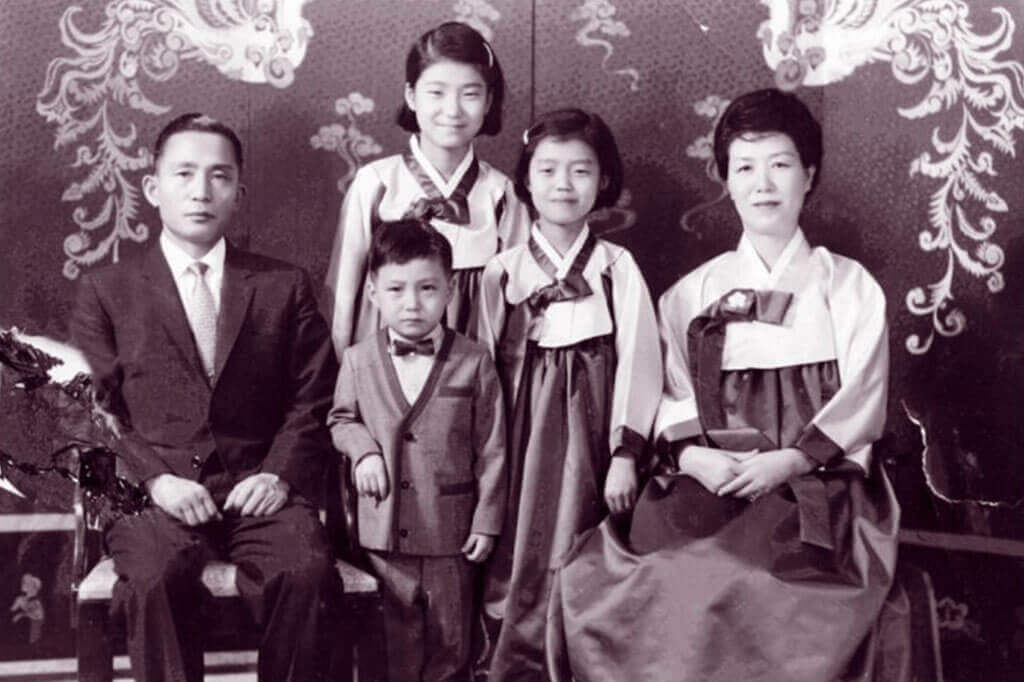
There was no time to grieve, however. She threw herself into her mother's role with grim determination, wanting to support her father as best as she could.
For the next five years, she stuck by his side at official inspection tours and visits, state events and functions, smiling and shaking hands warmly with statesmen and ordinary people alike, as her mother used to do.
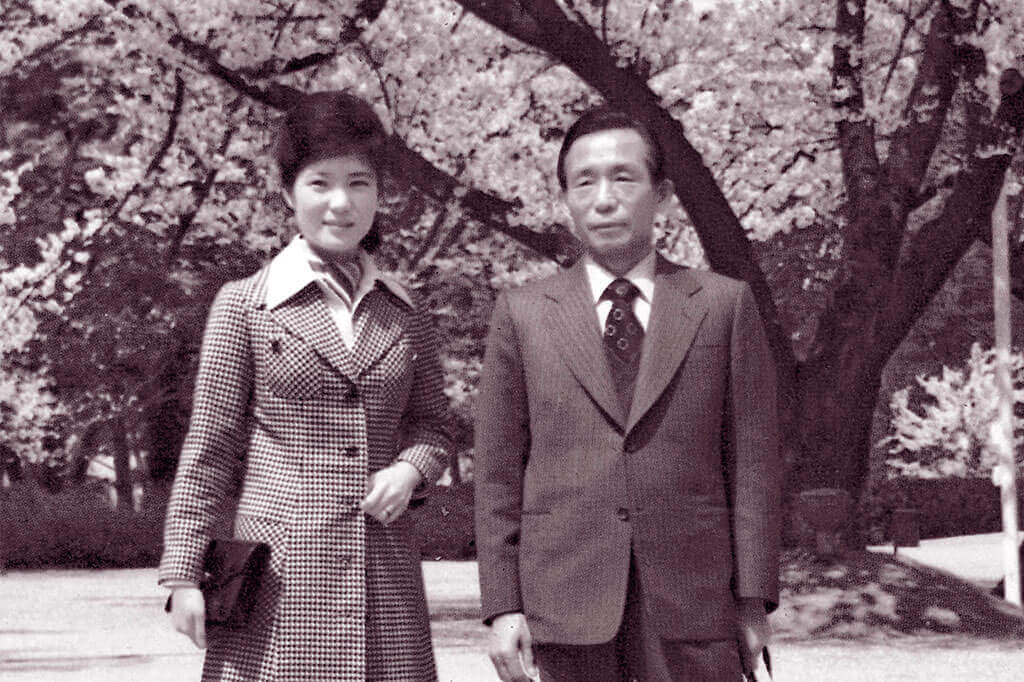
She was there as his First Lady as he welcomed US President Jimmy Carter and his wife to the presidential Blue House in 1979.
My greatest duty is to show the nation that my father is not alone. I have given up on my dreams to live as an ordinary person. I have thrown away my dreams of living a simple life.Park Geun Hye’s diary on Nov 10, 1974
But there was nothing she could do to save her father's life.
On Oct 26, 1979, Mr Park was gunned down over dinner by his own security chief.
Once again, Ms Park was given her slain parent's bloodied clothes. Once again, she washed them as a dutiful daughter would.
But this time, there was no going back to the Blue House. After her father was buried next to her mother in a state funeral on Nov 3, 1979, she waved the presidential staff goodbye, got into a shiny black car, and drove off to her new life.

It was shortly after her mother's death that Ms Park first met Ms Choi Soon Sil.
Ms Choi was four years younger and an undergrad then. She could have been any other youngster - except for the fact that her father Choi Tae Min enjoyed the confidence of the acting First Lady.
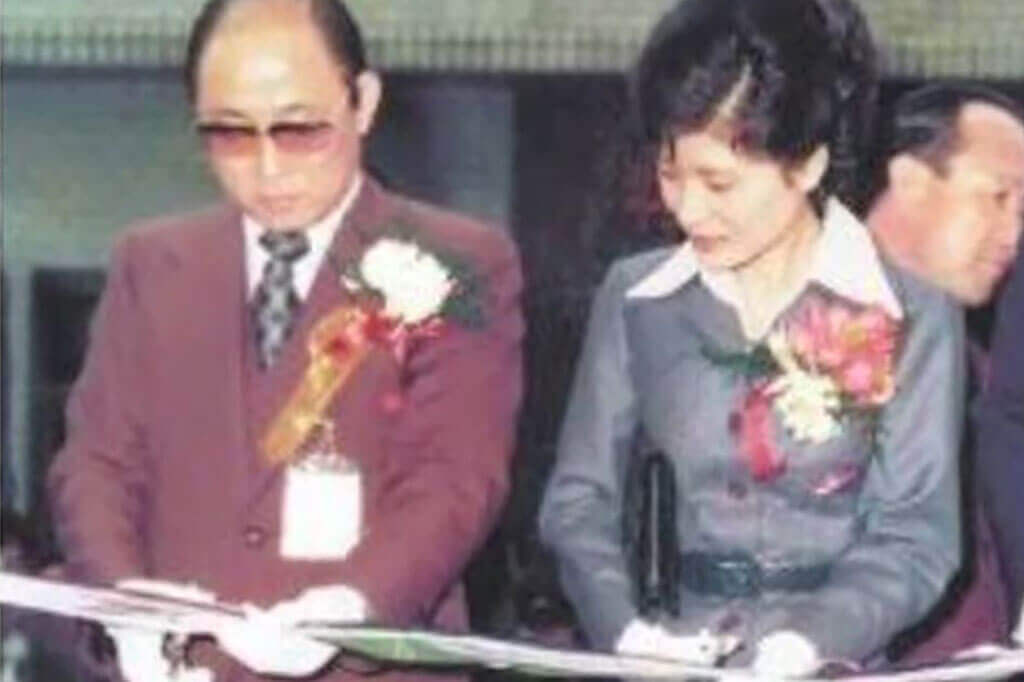
Mr Choi, a self-proclaimed pastor and founder of a cult-like group called the Church of Eternal Life, had approached the grieving Ms Park in 1974. He claimed that he was receiving messages from her mother and that she, too, could reach out to her beloved mother.
"Your mother has only relocated herself so as to raise you as a true leader of the nation and of the world," Mr Choi wrote in a letter to Ms Park, citing what he called a “spiritual message” from the late First Lady.
"Whenever you wish to hear your mother’s voice, you may do so through me."
Intrigued, the grieving daughter invited Mr Choi to the Blue House for a meeting. Thus began an unlikely relationship.
As Ms Park grew closer to her "spiritual adviser", she also befriended his fifth and apparently favourite daughter Soon Sil.
Whenever you wish to hear your mother’s voice, you may do so through me.Mr Choi Tae Min in a letter to Ms Park, citing what he called a “spiritual message” from Ms Park's late mother.
Ms Choi Soon Sil, as a student representative, stood next to Ms Park when the First Lady inaugurated Movement for a New Mind, a pro-government student volunteer group mooted by Choi senior.
Mr Choi would go on to use his influence over Ms Park to boost his social status and wealth, mostly by running what appeared to be patriotic organisations with the latter as the nominal leader.
According to the Korean Central Intelligence Agency (KCIA) - as the country's intelligence outfit was called in the 1970s - Mr Choi was a “pseudo pastor” who used his connection to Ms Park to secure bribes.
For President Park Chung Hee's detractors, who resented his autocratic rule under which many dissidents were prosecuted, jailed and even tortured, Mr Choi's perceived manipulation of the strongman's daughter for personal gain was the last straw.
Mr Kim Jae Gyu, the KCIA director who assassinated the president in 1979, said in his trial he was motivated partly by Mr Park’s “failure to prevent Choi Tae Min’s corrupt activities and keep him away from his daughter".
First Lady no more, Ms Park vanished from the public eye for almost two decades.
To this day, it is not entirely clear what she did during that time.
South Korean media have reported that she became the leader of a group established by her mentor Mr Choi and the Choi family was profiting off its relationship with Ms Park.
In 1998, as South Korea was buffeted by the Asian financial crisis, Ms Park decided to enter politics.
"Korea was built with so many sacrifices on the part of the people and cannot go under like this," she said.
She handily won a by-election in April 1998 and entered Parliament. Before long, she had become a leading figure in the conservative, male-dominated Grand National Party (GNP).
Under her helm, the party won all 40 elections and by-elections between 2004 and 2006.
The one-time princess who aspired to be a teacher was now the Queen of Elections.
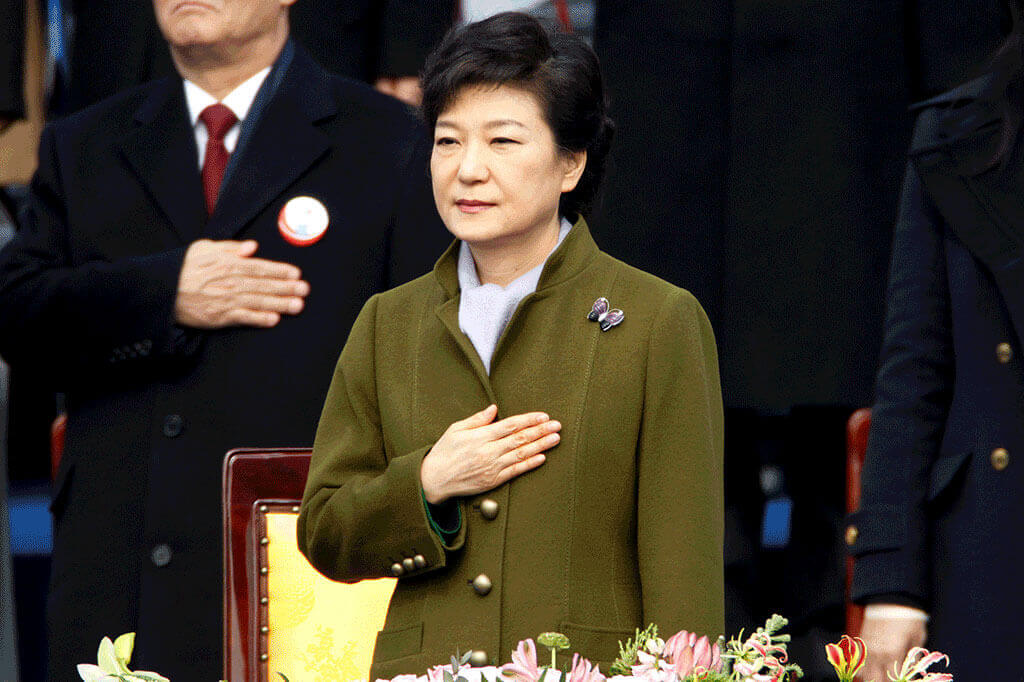
In 2012, she finally won the ticket back to the Blue House as South Korea's first female president, thanks in part to her late parents' lingering popularity with older South Koreans.
In her inauguration speech, titled Opening A New Era Of Hope, Ms Park pledged to build a happier country based on the rule of law and meritocracy.
"I will earn the trust of the people by ensuring that my Administration remains clean, transparent and competent," she told some 70,000 citizens, foreign dignitaries, and officials.
"I will help the public shed their distrust of government and build up the capital of trust."
The former First Daughter-turned-First Lady had finally come into her own.
Or had she?
As Ms Park kept the Chois close by her side, she grew distant from her two siblings.
In 1990, her younger sister Geun Ryong and younger brother Ji Man filed a petition to then-President Roh Tae Woo over a dispute with the senior Choi revolving around a non-profit foundation that was set up to commemorate their late parents.
The siblings claimed that Mr Choi had been manipulating their eldest sister, exploiting the foundation for illicit gains and trying to alienate them.
Rumours are rife that the late pastor had complete control over Park’s body and soul during her formative years...US Embassy in Korea dispatch, 2007
In 2007, as Ms Park fought for her party's nomination for the presidency, the US Embassy in South Korea reported in a dispatch back to Washington that "rumours are rife that the late pastor had complete control over Park’s body and soul during her formative years and that his children accumulated enormous wealth as a result".
Some rumours even alleged that Ms Park, who has never married, had a child with Mr Choi, who was married six times. She vehemently denied any such romantic liaison.
The US embassy report called Mr Choi, who died in 1994 aged 82, a "Korean Rasputin".
But in a media interview in 2007, Ms Park called her late mentor a patriot and said she was grateful for his counsel and comfort during "difficult times".
She had remained close to Soon Sil, Mr Choi's daughter, all this while.
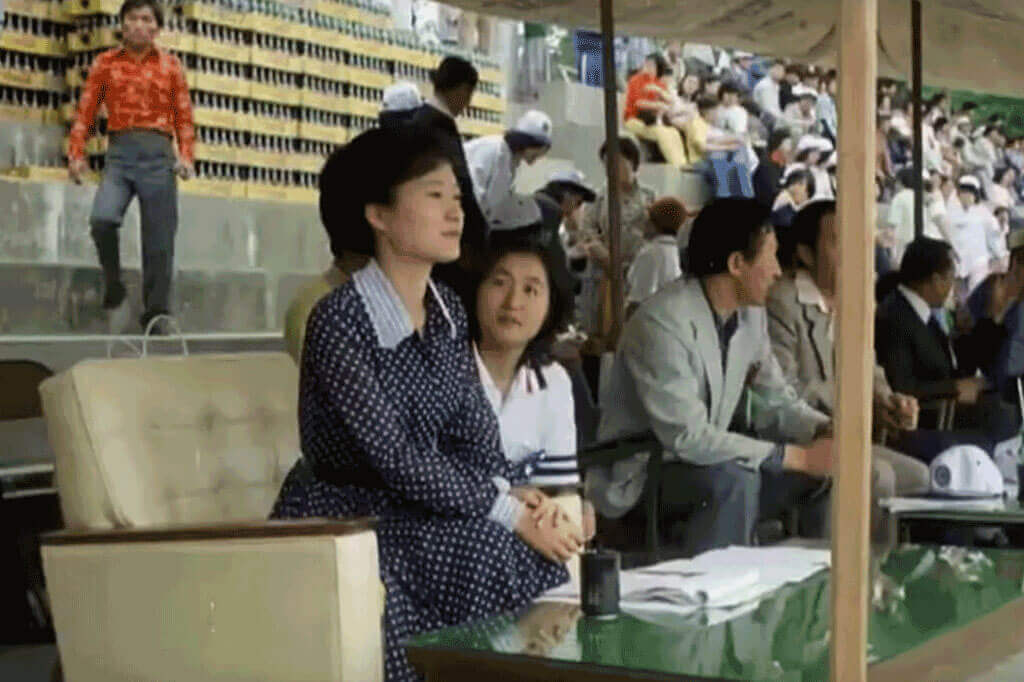
Little did she know that their enduring friendship would prove to be her undoing.
By some accounts, the two women were so close that Ms Choi calls the President "sister".
Her husband, Mr Chung Yoon Hoi, was Ms Park's aide when she was a lawmaker but resigned from the job in 2007. Or so it seemed.
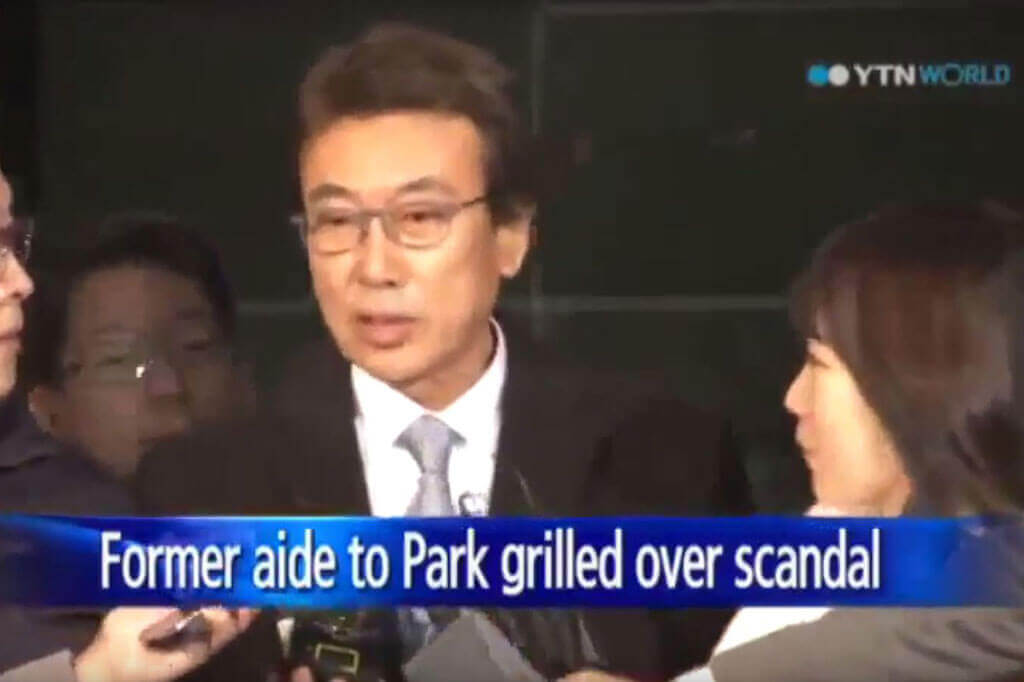
On April 16, 2014, a ferry carrying 476 people, including 325 high school students on a field trip, capsized en route to Jeju island, killing 304 passengers and crew.
As the Coast Guard, Navy, and other vessels worked frantically to rescue the people onboard in the initial hours of the disaster, President Park was conspicuously missing from the national emergency room.
She had received a text message of the accident at 9.24am, followed by a written report at 10am. But it was only seven hours later, at 5.15pm, that she showed up at the Central Disaster and Safety Countermeasures Headquarters.
At that time, most of those who would later be found dead were still missing, trapped in the hull of the overturned ship. Seemingly oblivious to this, Ms Park's first question to the officials at the disaster HQ was: "The students are wearing life vests, so why aren‘t they found yet?"
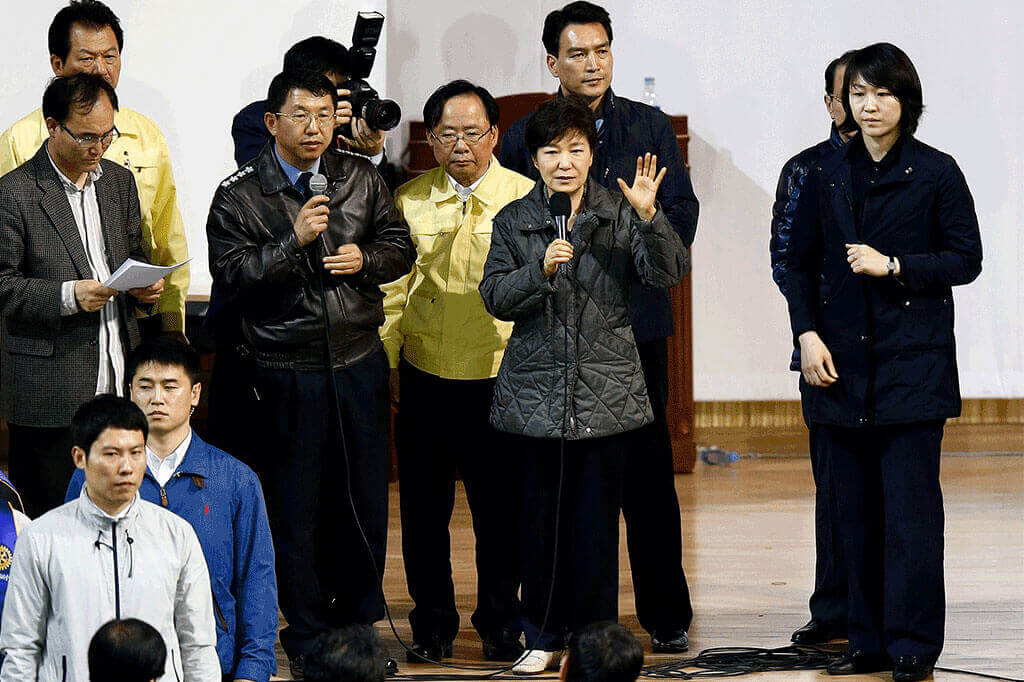
As the country sank into mourning and demanded those accountable for the tragedy be punished, the once-popular president's approval ratings plunged from 70 points to the 40s range. Her wooden showing on a visit to the memorial for the young victims incensed their parents further, and calls for her resignation rang out even as she promised a shake-up of the maritime industry as well as the Coast Guard.
Things only got worse for Ms Park.
In August 2014, a Japanese newspaper, Sankei Shimbun, said in a report that Ms Park had been with Mr Chung on a romantic tryst during those seven critical hours when she was supposed to have been directing the Sewol rescue operation.
The journalist was charged with defamation. But more damning reports followed.
In November 2014, South Korean newspaper Segye Ilbo published an expose based on a leaked document from the Blue House. Mr Chung, the document said, was running the presidential office like a puppet master, ordering Ms Park's secretaries to do his bidding, despite holding no official position.
Little wonder the President had been making questionable personnel appointments since she took office, the opposition said.
They included five ministerial nominees who failed to pass confirmation hearings because of alleged "irregularities" in their resumes. Even more embarrassing was the case of former Blue House spokesman Yoon Chang Jung, who was accused of sexually assaulting an intern during a trip to Washington as part of Ms Park's entourage in 2013.
Both President Park and Mr Chung dismissed the allegations as fabrications.
But the man who ordered the drafting of the leaked document, Ms Park's former secretary for civil service discipline Cho Eung Cheon, contended that more than 60 per cent of what was stated in the document was true.
Mr Cho claimed he was forced to quit his job in April 2014, after he refused to take phone calls from Mr Chung.
"I tried to sincerely fulfil my duty as a Blue House watchdog for President Park but was severely constrained," he told the Chosun Ilbo newspaper.
Mr Cho was indicted in 2015 for leaking the Blue House dossier, but was later acquitted.
In 2016, he joined the main opposition Minjoo Party, dealing a serious blow to the Park administration before legislative elections in April 2016. Minjoo edged past Ms Park's ruling Saenuri party to win the election.
Throughout all this, Ms Choi had kept her head low.
Even her divorce in July 2014 from Mr Chung, with whom she has a 20-year-old daughter Yoo Ra, was disclosed only in a newspaper interview he gave to deny the allegation that he was a Blue House puppet master.
Few knew that she had changed her name to Ms Choi Seo Won.
But behind the scenes, Ms Choi was a confidante and adviser to the princess she has served for the past 40 years - even as she amassed billions of won by influence-peddling.
Ms Park's Chief of Staff Lee Won Jong responded to the rumours by saying: "You’d have to be crazy to believe this."
Then, on Oct 24, 2016, cable news channel JTBC dropped the bomb. It had obtained a discarded tablet which it said once belonged to Ms Choi.
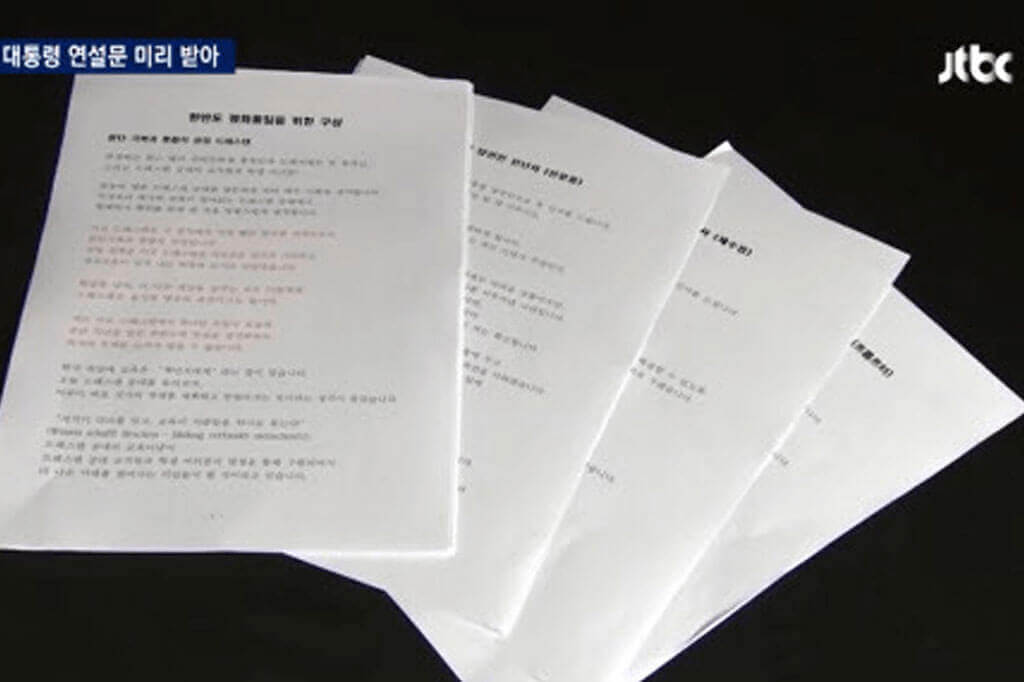
It contained drafts of 44 speeches and other statements President Park had given from 2012 to 2014, including a speech in Germany which laid out Ms Park's vision for eventual reunification between the two Koreas.
The computer's log showed that the documents were received hours or days before Ms Park delivered the speeches.
Many passages were marked in red.
Since I arrived in the presidential office, I’ve lived a lonely life.President Park in a nationally televised apology on Nov 4, 2016
For once, there was no protest from the Blue House, nor threats of defamation lawsuits.
The very next day, on Oct 25, President Park made a televised apology to the nation.
For the first time, she acknowledged that she had leaned on the advice and assistance of Ms Choi, who has no official position in the government. She did not, however, address the corruption allegations.
Condemnations came thick and fast.
"This isn’t even a dictatorship," said Ms Choo Mi Ae, Minjoo Party's chairman. "It’s a terrifying theocracy."
She added: "Park never communicated with the people. She never communicated with the public servants, vice-ministers or ministers. She only had her spiritual communication with Choi."
Ms Park made a second, similar apology on Nov 4, days after Ms Choi and two presidential aides were taken into custody. This time, it was the lonely orphan who appealed to the nation to forgive her.
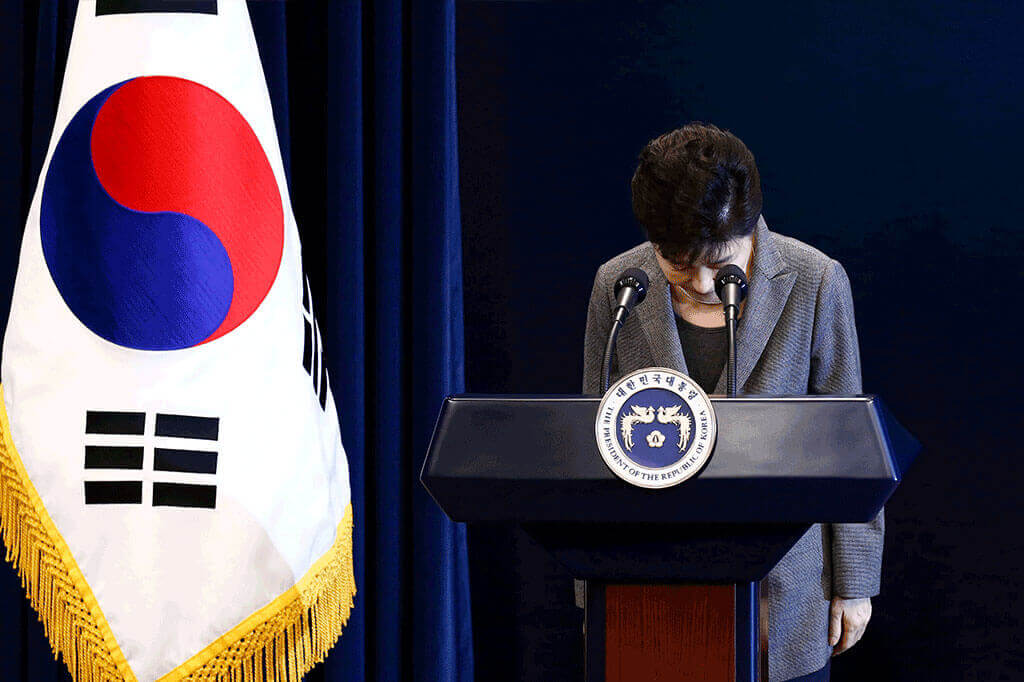
"Since I arrived in the presidential office, I’ve lived a lonely life," said a solemn Ms Park, dressed in a sombre brown suit. She seemed on the verge of tears.
"I cut off all ties with my family members out of fear of unfortunate incidents. I had no one nearby to help me with personal matters, so I turned to Ms Choi Soon Sil for help," she said, adding that she would submit to an official investigation if necessary.
"[Choi] was the person that stood by me during my hardest times, so I had my guard down."
But South Koreans were not going to let this go, not after they had placed their faith in the seemingly incorruptible princess.
Week after week, millions of angry South Koreans hit the streets to demand Ms Park's ouster. Her approval rating fell to a historic low of 4 per cent.
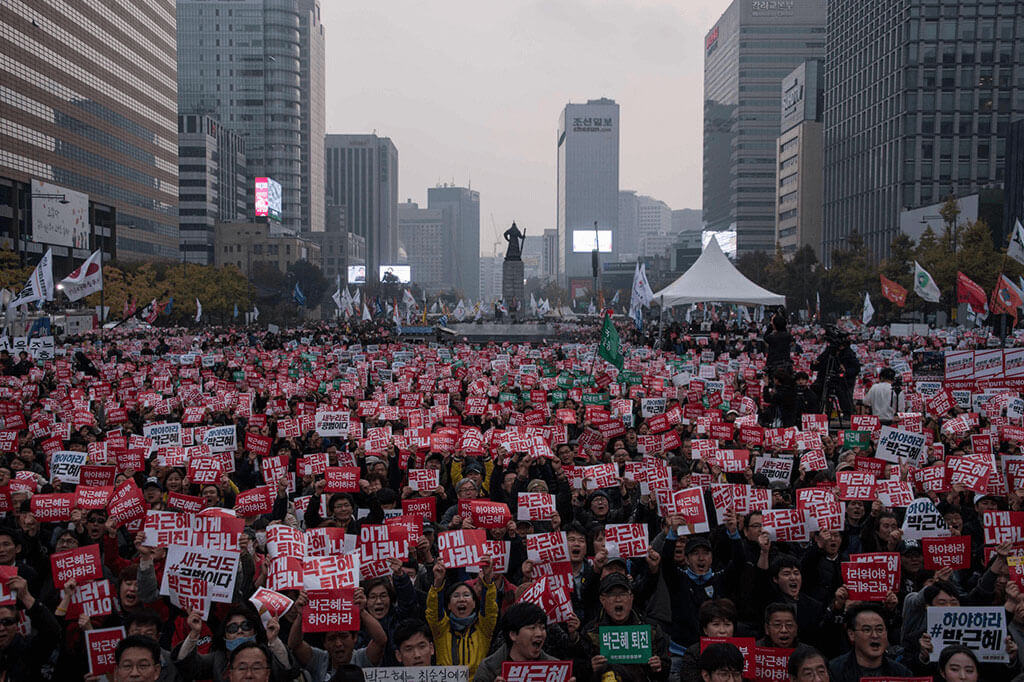
In November, prosecutors formally charged Ms Choi with abuse of power and coercion. Ms Park was named as a "co-culprit" who had colluded with Ms Choi to compel the chaebols into giving cash donations to Ms Choi's non-profit foundations, becoming the first South Korean President to become a criminal suspect while in office.
On Dec 9, the national Parliament voted overwhelmingly to impeach her, stripping her of her presidential powers.
She denied wrongdoing during her ensuing impeachment trial by the country’s top court, but few really believed her anymore.
On March 10, 2017, the court upheld the impeachment, condemning her to ignominy for the rest of her life as the first President of South Korea to be removed from office.
The following month she was formally indicted on 18 charges including bribery, coercion, abuse of power and leaking state secrets. Prosecutors sought a 30-year sentence and a 118.5 billion won (S$146 million) fine. She denied wrongdoing.

Her trial began in May 2017 but she boycotted most sessions in protest at being held in custody since March 31, 2017. She also refused to see anyone - not even her siblings - apart from her lawyers.
On Apr 6, 2018, the former president was convicted and sentenced to 24 years in prison.
Judge Kim Se Yoon noted that she had shown “no sign of repentance”.
“The accused abused the power bestowed by the people – the true ruler of this country," he said.
NEXT